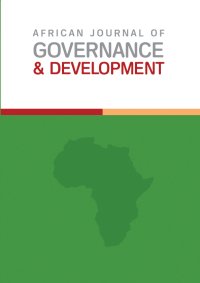The Role of the African Union in Post-Election Violence in Kenya
Main Article Content
Abstract
Although post-colonial Kenya avoided major conflicts, it failed to develop political and institutional arrangements capable of promoting social cohesion and co-operation among a divided people. What emerged after the fall of colonialism were political and institutional arrangements that fostered patterns of domination and exclusion. These observations lay the basis for the issues surrounding the post-election violence that broke out in Kenya in December 2007.This paper provides a critical analysis of the causes, extent and nature of the post-election crisis in Kenya, paying particular attention to the processes employed by the AU to deal with conflict, the AU’s strengths and challenges in managing electoral conflict and the gaps within the AU’s current approach to electoral conflict management. Hall (1996) and Steinmo’ (2001) Institutional Theory provides an analytical lens inexamining the AU’s role. Institutional theory assumes how institutional valuesshape/constrain the behaviour of individual members and produce change.
Article Details

This work is licensed under a Creative Commons Attribution-NonCommercial-NoDerivatives 4.0 International License.
